-
 Bitcoin
Bitcoin $84,293.8118
2.92% -
 Ethereum
Ethereum $1,812.6156
1.61% -
 Tether USDt
Tether USDt $0.9995
-0.01% -
 XRP
XRP $2.1300
3.96% -
 BNB
BNB $598.0731
1.81% -
 Solana
Solana $122.5476
6.46% -
 USDC
USDC $0.9999
0.00% -
 Dogecoin
Dogecoin $0.1697
6.92% -
 Cardano
Cardano $0.6614
3.58% -
 TRON
TRON $0.2399
1.67% -
 UNUS SED LEO
UNUS SED LEO $9.4721
0.87% -
 Chainlink
Chainlink $12.9918
2.93% -
 Toncoin
Toncoin $3.3918
-5.15% -
 Stellar
Stellar $0.2593
0.64% -
 Avalanche
Avalanche $18.1424
0.54% -
 Sui
Sui $2.2723
2.26% -
 Shiba Inu
Shiba Inu $0.0...01227
0.72% -
 Hedera
Hedera $0.1657
3.27% -
 Litecoin
Litecoin $84.4108
2.68% -
 Polkadot
Polkadot $4.0452
0.41% -
 MANTRA
MANTRA $6.2735
-2.26% -
 Bitcoin Cash
Bitcoin Cash $299.8507
1.71% -
 Bitget Token
Bitget Token $4.5438
1.99% -
 Dai
Dai $1.0001
0.01% -
 Ethena USDe
Ethena USDe $0.9992
-0.03% -
 Hyperliquid
Hyperliquid $11.9337
5.81% -
 Monero
Monero $215.5583
2.77% -
 Uniswap
Uniswap $5.9113
3.01% -
 Pi
Pi $0.5297
-9.83% -
 NEAR Protocol
NEAR Protocol $2.4929
1.07%
How does NFT Licensing Models stipulate the right to use NFTs?
NFT licensing models clarify usage rights beyond ownership, ranging from simple display to commercial exploitation. Clear, legally sound agreements are crucial to avoid disputes, as they define the scope of permitted uses and any associated royalties.
Mar 06, 2025 at 04:18 pm
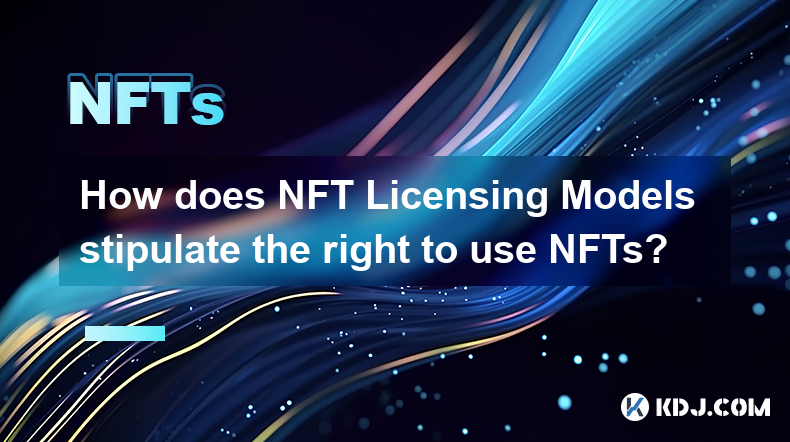
Key Points:
- NFT licensing models define the scope of rights granted to a buyer beyond mere ownership.
- Different licensing models offer varying degrees of usage rights, from simple display to commercial exploitation.
- Legal clarity and precise wording in licensing agreements are crucial to avoid disputes.
- Choosing the right model depends on the creator's goals and the intended use of the NFT.
- Understanding intellectual property rights is fundamental to crafting effective NFT licenses.
How Does NFT Licensing Models Stipulate the Right to Use NFTs?
Non-Fungible Tokens (NFTs) represent ownership of a unique digital asset, but the rights associated with that ownership aren't always straightforward. NFT licensing models are crucial for clarifying the extent to which the buyer can use the NFT beyond simply possessing it. These models determine whether the buyer can reproduce, modify, distribute, or commercially exploit the underlying asset. The lack of standardized licensing practices within the NFT space highlights the need for clear and comprehensive agreements.
The most basic model grants the buyer the right to display the NFT, perhaps as a profile picture or in a digital gallery. This offers limited usage rights, focusing primarily on ownership and personal enjoyment. The NFT holder cannot commercially use the asset without explicit permission from the creator. This is often the default understanding unless a more comprehensive license is explicitly granted.
More expansive licensing models allow for commercial use. This could include using the NFT in merchandise, marketing materials, or other commercial ventures. However, these licenses often require additional payments or royalties to the original creator. The specifics, such as the royalty percentage and the permitted scope of commercial use, must be clearly defined in the license agreement. This model balances the buyer's desire for commercial use with the creator's ongoing financial interest in their creation.
Another key aspect is the granting of derivative rights. This concerns the creation of new works based on the original NFT. Some licenses might explicitly prohibit derivative works, while others might permit them under certain conditions, such as requiring the creator's approval or sharing revenue from the derivative works. The complexity here emphasizes the importance of legal expertise when crafting or interpreting NFT license agreements.
The licensing model can also stipulate the territorial scope of the rights granted. A license might only permit use within a specific country or region, while a global license allows use worldwide. This geographical limitation is particularly relevant for NFTs with potentially significant commercial applications. The specifics of these geographical restrictions need careful consideration and precise legal drafting.
Beyond the core elements, other considerations can influence the scope of usage rights. These include limitations on the number of copies that can be made, restrictions on the platforms where the NFT can be used, and time limits on the license duration. All these parameters require meticulous detailing in the licensing agreement to avoid future conflicts.
The importance of clear and legally sound licensing agreements cannot be overstated. Ambiguity can lead to disputes and legal battles. Ambiguous wording might inadvertently grant broader rights than intended, or conversely, restrict the buyer’s use in unforeseen ways. Consulting with legal professionals experienced in intellectual property law and blockchain technology is advisable when creating or acquiring NFTs with commercial potential.
This process of defining usage rights extends beyond simple ownership. While you might own the NFT itself, the underlying intellectual property rights might remain with the creator. This distinction is vital. The NFT might grant you ownership of a specific digital file, but it doesn't automatically grant you the right to reproduce, modify, or commercially exploit that file without explicit permission from the rights holder. Navigating this distinction requires a thorough understanding of copyright and trademark laws.
Different types of NFT licenses might include:
- Simple Display License: Allows only for personal display of the NFT. No commercial use.
- Commercial Use License: Permits the holder to use the NFT in commercial activities, often with royalty payments to the creator.
- Derivative Works License: Authorizes the creation of new works based on the original NFT, possibly with restrictions and royalty sharing.
- Exclusive License: Grants the buyer exclusive rights to use the NFT for a specific purpose or territory.
- Limited License: Grants specific usage rights for a limited time or quantity.
The complexity of NFT licensing demands careful attention to detail. The precise language used in the license agreement is crucial to ensure both parties understand and agree upon the scope of usage rights. It is imperative that creators and buyers consult with legal counsel to understand their rights and obligations before entering into any NFT transaction.
Frequently Asked Questions:
Q: Can I sell an NFT I own without violating any licensing agreements?
A: Generally, yes, unless your licensing agreement explicitly restricts resale. However, any royalties or other conditions stipulated in the original agreement might still apply.
Q: What happens if the NFT license is unclear or ambiguous?
A: Ambiguity can lead to disputes and legal battles. Courts will typically interpret the contract based on its wording, which highlights the importance of clear and precise language.
Q: Do I need a lawyer to understand NFT licensing?
A: While not always strictly necessary for simpler NFTs, legal counsel is highly recommended for NFTs with significant commercial value or complex licensing terms. Legal expertise can prevent costly misunderstandings and disputes.
Q: Can the creator revoke my license after I've purchased an NFT?
A: The ability to revoke a license depends on the terms of the agreement. Generally, once a license is granted, it is binding unless the agreement specifies conditions for revocation. However, fraud or breach of contract could be grounds for revocation.
Q: How are royalties handled in NFT licensing agreements?
A: Royalty mechanisms vary. Some platforms automatically handle royalties on secondary sales, while others rely on the buyer and seller to honor the agreed-upon percentage. The details must be clearly defined in the licensing agreement.
Q: What if I want to use the NFT in a way not explicitly covered in the license?
A: You should contact the creator to negotiate an amendment to the license. Using the NFT outside the scope of the agreed-upon license could lead to legal action.
Disclaimer:info@kdj.com
The information provided is not trading advice. kdj.com does not assume any responsibility for any investments made based on the information provided in this article. Cryptocurrencies are highly volatile and it is highly recommended that you invest with caution after thorough research!
If you believe that the content used on this website infringes your copyright, please contact us immediately (info@kdj.com) and we will delete it promptly.
- Justin Sun Accuses First Digital Trust of Insolvency, Triggering Severe Depeg of the FTUSD Stablecoin
- 2025-04-05 03:20:12
- The psychology of betting: how digital assets influence player behavior in 1win
- 2025-04-05 03:20:12
- Remittix Solves Real-World Problems and Provides an Actual Solution to Crypto Payments
- 2025-04-05 03:15:12
- The Crypto Market's 2025 Bull Run Is Here
- 2025-04-05 03:15:12
- If You're Hunting for the Best Meme Coin to Buy, Now's the Time to Look Beyond the Usual Suspects
- 2025-04-05 03:10:13
- PayPal Expands Crypto Services with Solana and Chainlink
- 2025-04-05 03:10:13
Related knowledge
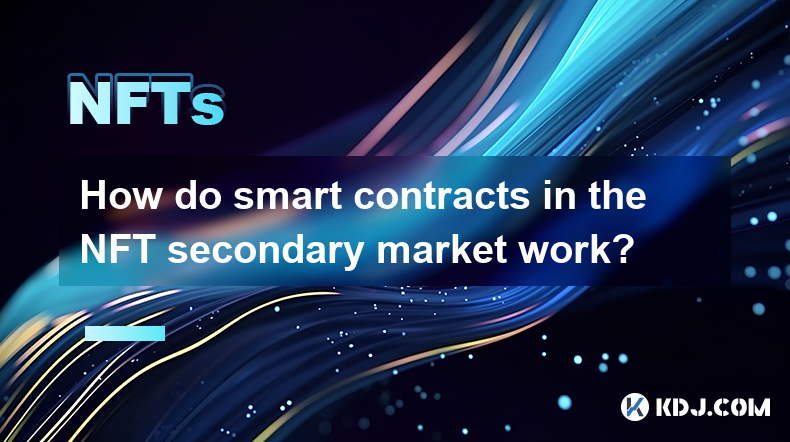
How do smart contracts in the NFT secondary market work?
Apr 03,2025 at 07:14am
Smart contracts play a pivotal role in the NFT secondary market, facilitating seamless transactions and enforcing predefined rules. These self-executing contracts with the terms of the agreement directly written into code are stored on the blockchain. In the context of NFTs, smart contracts automate the buying, selling, and transferring of digital asset...
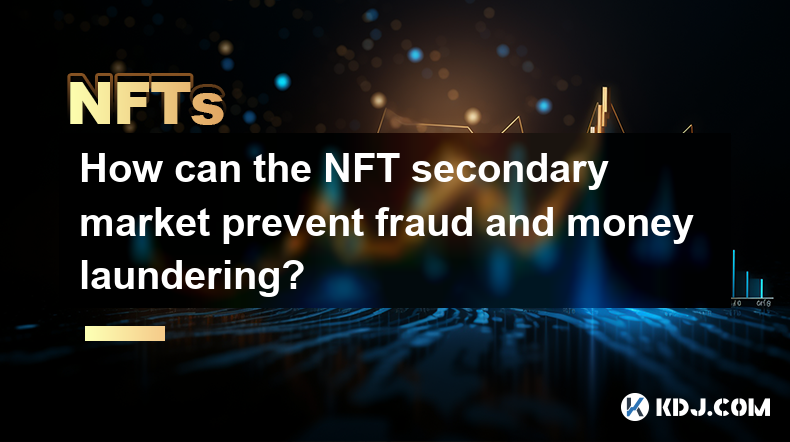
How can the NFT secondary market prevent fraud and money laundering?
Apr 03,2025 at 08:35am
The NFT secondary market has become a thriving hub for digital art and collectibles, but it also faces challenges in preventing fraud and money laundering. To tackle these issues, the market can implement various strategies and technologies to ensure a safer and more transparent trading environment. This article will explore how the NFT secondary market...
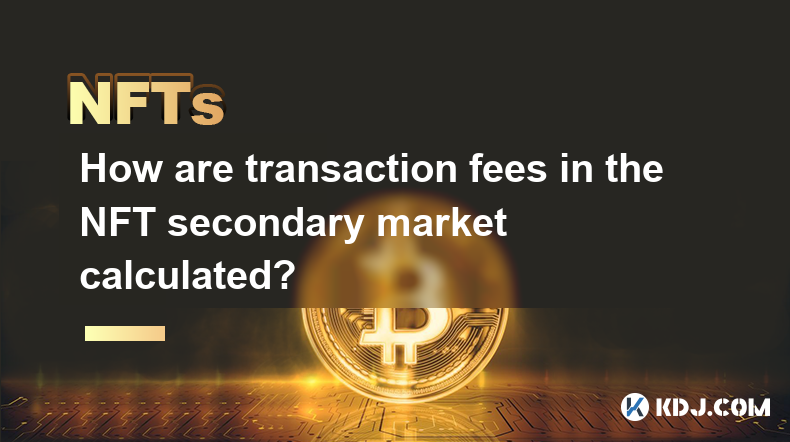
How are transaction fees in the NFT secondary market calculated?
Apr 04,2025 at 05:28am
The calculation of transaction fees in the NFT secondary market is a crucial aspect that both buyers and sellers need to understand. These fees can significantly impact the overall cost of transactions and the profits that sellers can make. In this article, we will delve into the various components that make up these fees, how they are calculated, and w...
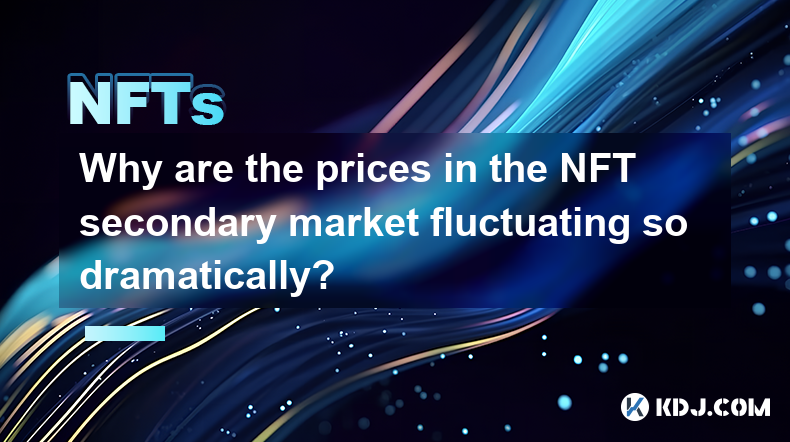
Why are the prices in the NFT secondary market fluctuating so dramatically?
Apr 03,2025 at 10:35pm
The NFT secondary market has been experiencing dramatic price fluctuations, leaving many in the cryptocurrency community puzzled and curious. To understand this phenomenon, it's essential to delve into the factors driving these price movements. From the impact of market sentiment and celebrity endorsements to the role of speculation and the unique natur...
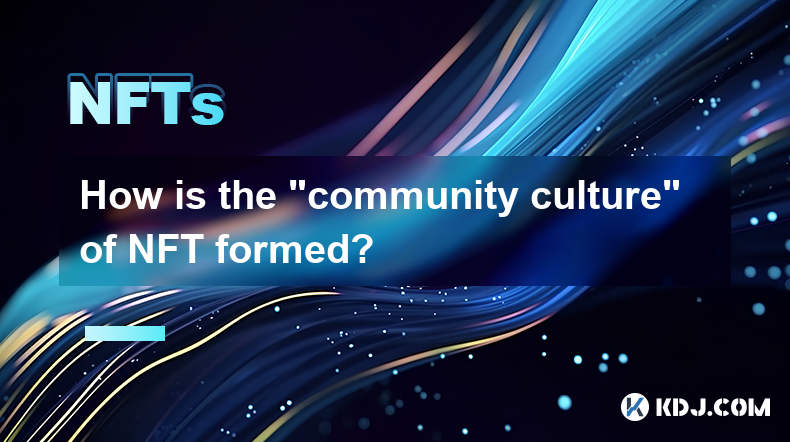
How is the “community culture” of NFT formed?
Apr 03,2025 at 11:07am
The formation of the 'community culture' within the NFT (Non-Fungible Token) space is a fascinating and multi-faceted process. It involves various elements such as shared interests, active engagement, and the creation of a sense of belonging among members. NFT communities often revolve around specific projects or artists, fostering a unique environment ...
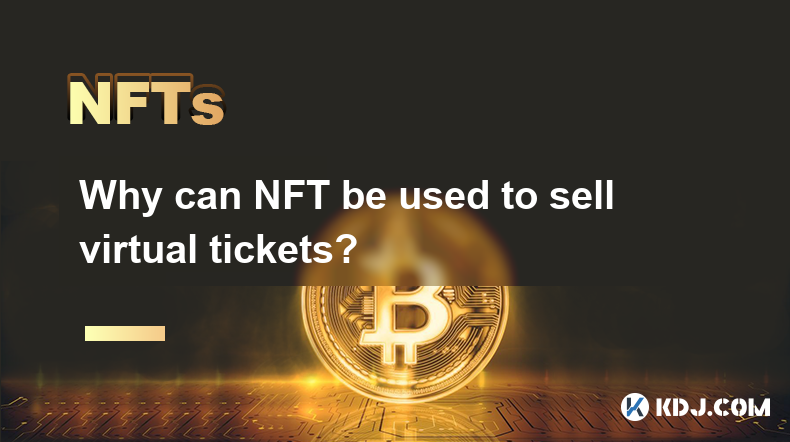
Why can NFT be used to sell virtual tickets?
Apr 03,2025 at 01:35pm
NFTs, or Non-Fungible Tokens, have revolutionized the way we think about digital ownership and value, particularly in the realm of virtual tickets. The primary reason NFTs can be used to sell virtual tickets is their unique nature. Unlike cryptocurrencies such as Bitcoin or Ethereum, which are fungible and can be exchanged on a one-to-one basis, NFTs ar...

How do smart contracts in the NFT secondary market work?
Apr 03,2025 at 07:14am
Smart contracts play a pivotal role in the NFT secondary market, facilitating seamless transactions and enforcing predefined rules. These self-executing contracts with the terms of the agreement directly written into code are stored on the blockchain. In the context of NFTs, smart contracts automate the buying, selling, and transferring of digital asset...

How can the NFT secondary market prevent fraud and money laundering?
Apr 03,2025 at 08:35am
The NFT secondary market has become a thriving hub for digital art and collectibles, but it also faces challenges in preventing fraud and money laundering. To tackle these issues, the market can implement various strategies and technologies to ensure a safer and more transparent trading environment. This article will explore how the NFT secondary market...

How are transaction fees in the NFT secondary market calculated?
Apr 04,2025 at 05:28am
The calculation of transaction fees in the NFT secondary market is a crucial aspect that both buyers and sellers need to understand. These fees can significantly impact the overall cost of transactions and the profits that sellers can make. In this article, we will delve into the various components that make up these fees, how they are calculated, and w...

Why are the prices in the NFT secondary market fluctuating so dramatically?
Apr 03,2025 at 10:35pm
The NFT secondary market has been experiencing dramatic price fluctuations, leaving many in the cryptocurrency community puzzled and curious. To understand this phenomenon, it's essential to delve into the factors driving these price movements. From the impact of market sentiment and celebrity endorsements to the role of speculation and the unique natur...

How is the “community culture” of NFT formed?
Apr 03,2025 at 11:07am
The formation of the 'community culture' within the NFT (Non-Fungible Token) space is a fascinating and multi-faceted process. It involves various elements such as shared interests, active engagement, and the creation of a sense of belonging among members. NFT communities often revolve around specific projects or artists, fostering a unique environment ...

Why can NFT be used to sell virtual tickets?
Apr 03,2025 at 01:35pm
NFTs, or Non-Fungible Tokens, have revolutionized the way we think about digital ownership and value, particularly in the realm of virtual tickets. The primary reason NFTs can be used to sell virtual tickets is their unique nature. Unlike cryptocurrencies such as Bitcoin or Ethereum, which are fungible and can be exchanged on a one-to-one basis, NFTs ar...
See all articles





















































































